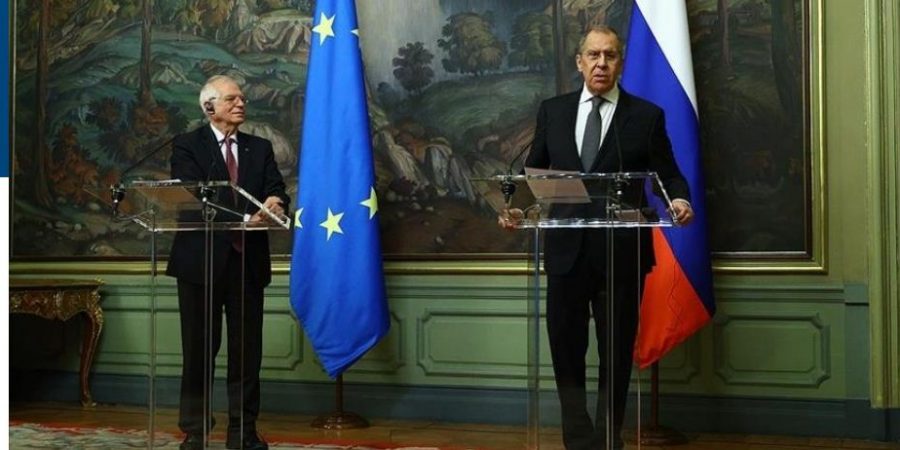Russia-EU break possible but unwanted: Analyst

MOSCOW, FEB 21 – Pressures in relations between Russia and the West have recently become so strained that Foreign Minister Sergey Lavrov warned of the possibility of a complete break in ties.
In an interview with Anadolu Agency, Andrey Kortunov, head of the Russian International Affairs Council, a Moscow-based academic and diplomatic think tank established upon a presidential decree, assessed how real the threat is and what consequences it could lead to.
It is necessary to make it clear what “a possible break with the EU” means – whether cutting relations with individual European countries or with European Union structures, said Kortunov.
“If we talk about EU countries, we shouldn’t forget that they now account for more than 40% of Russia’s trade turnover, they are the main source of investments and technologies that go to Russia. No one is ready to give up on this, and no one will,” he said.
As for structures of the EU bloc, in general, a break would be possible, but it would be both unwanted and unwelcomed, he said.
Kortunov noted that cooperation between Russia and the EU shrank in recent years, and a great many of the structures established to build bilateral ties have been closed.
“For example, in the past, we regularly held EU-Russia summits twice a year – in the first half of the year in Russia, in the second half in the EU presiding country or in Brussels,” he explained.
“Now such summits do not take place. The number of working groups that work in specific areas has decreased.”
Following this logic, breaking or freezing the remaining ties is possible but it is an extremely unwanted scenario because it is impossible to have good relations with European countries – EU members – and not have any relations with the EU itself, Kortunov said.
“A number of important issues lay within the competency of the European Union, including but not limited to trade and scientific and technical cooperation,” he said.
He warned: “Sooner or later, our projects with individual countries will run into unresolved issues at the level of the EU bureaucracy. Therefore, in principle – I repeat once again – a break is possible, but it is extremely unwanted because it is fraught with many negative consequences.”
Cooperation in ‘non-toxic’ areas
The EU is interested in cooperation with Russia as well, as it is a big market and important partner, he added.
Russia also plays an important role in the Middle East, and the situation in the region directly affects life in the EU, so cooperation on regional conflicts is another important part of Russian-EU interaction, said Kortunov.
To defuse the situation, he said, both sides have to exercise caution in their rhetoric.
“It’s one thing for members of parliament to say something critical, and quite another for the decision-makers in the executive branch to do that. The latter should exercise as much restraint as possible,” said Kortunov.
Cooperation in “non-toxic” areas, where Russia and the EU can work together despite political differences without making any difficult concessions, would also contribute to building trust, he said.
“And we need an open discussion with the EU about how we see ourselves in the world in five, 10, maybe more years,” he said.
“We need a strategic dialogue, which is not currently being conducted, at least I do not know that it is being conducted. And then we can gradually correct the relationship.”
Foreign Minister Lavrov said last week that the EU had been breaking bilateral mechanisms established under agreements on partnership and cooperation.
Asked if Russia is heading for a breach with the EU, Lavrov said he believed Moscow would be ready for it, and the country has to become fully economically self-sufficient in case sanctions are imposed in a sphere where they could risk the Russian economy.
Related News

Pakistan, Indonesia pledge stronger cultural and heritage ties amid deepening bilateral friendship
ISLAMABAD, Jul 24 (DNA):In a significant step towards deepening cultural cooperation, Pakistan and Indonesia haveRead More

Saudi Naval Chief Meets CJCSC in Rawalpindi to Discuss Regional Maritime Security
RAWALPINDI, JULY 24 : Vice Admiral Mohammed bin Abdulrahman Al Ghuraybi, Chief of the NavalRead More


Comments are Closed